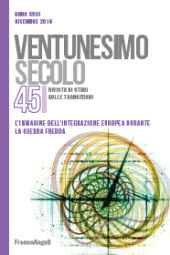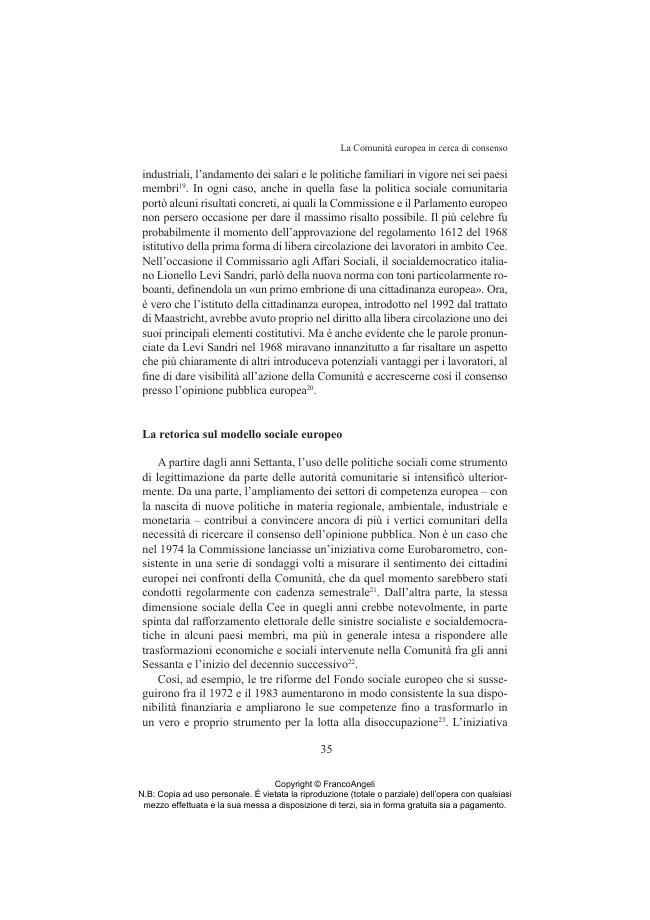La Comunità europea in cerca di consenso : l'Europa sociale come strumento di legittimazione
27-43 p.
In spite of its marginal position in the founding treaties, the social dimension of the European Communities was widely publicised from the very beginning. In the context of the Cold War, social policies - such as the free movement of workers, the promotion of vocational training and aid to the adaptation of fi red workers - were seen as useful instruments of legitimisation, as they contributed to spread a positive image of the Communities in the public opinion. This is why the top offi cials of the Ecsc and the Eec missed no chance to mention the European social legislation and its concrete applications. An attitude that was further amplifi ed in the following years, and culminated in the rhetoric of the "European social model", by which the European Commission accompanied the deepened economic integration introduced in the 1980s and 1990s by the Single European Act and the Maastricht Treaty [Publisher's text].
-
Articles du même numéro (disponibles individuellement)
-
Informations
Code DOI : 10.3280/XXI2019-045003
ISSN: 1594-3755
KEYWORDS
- European economic integration, social Europe, legitimisation



